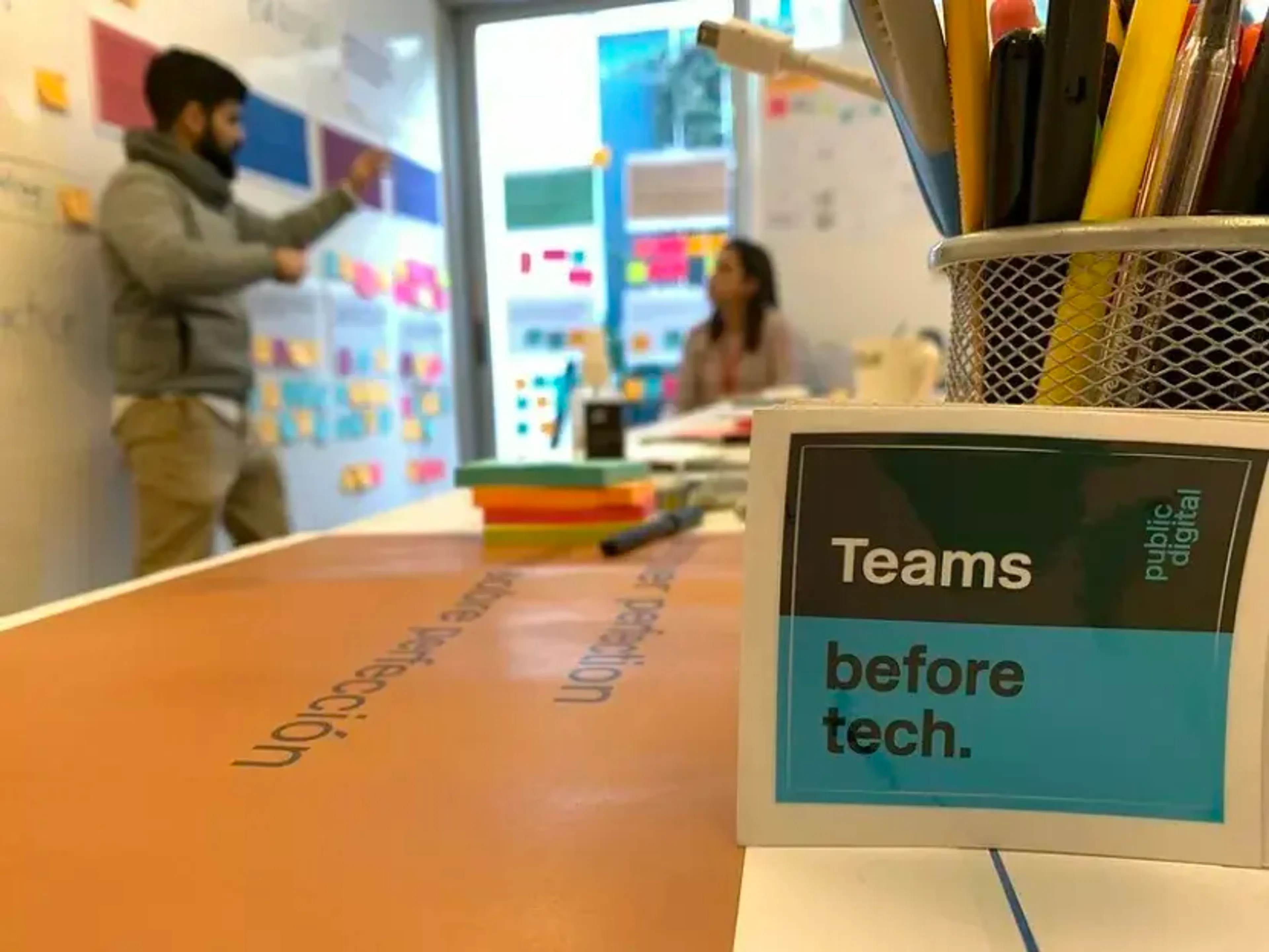A digital decade must put local teams before global technology
Emily Middleton worked as a Partner at Public Digital from September 2018 until July 2024 and set up Public Digital’s international practice, working with multilateral development banks, UN agencies, and philanthropies.
She wrote this piece for ICT Works. It was first published on their site on 1 October 2020.

Recently, there’s been lots of events around the UN General Assembly on the themes of digital cooperation, and investing in digital public goods to herald a new digital decade. Our team at Public Digital found lots to applaud.
- A renewed emphasis on inclusion.
- A focus on national digital sovereignty.
- A clear commitment to open source.
- A widespread recognition that much tighter donor coordination is needed on digital.
- An interest in GAVI-style pooled financing.
But one major priority was missing: local teams.
Many of the new announcements and commitments have focused on digital public goods, and funding for initiatives like open-source identity, payments, and procurement platforms. We agree that investing in digital infrastructure is vital to strengthen public institutions.
Open-source components - and tried-and-tested cloud services - can give governments a head start, provided the ongoing funding and community is there to sustain them. But investing in people is just as important - if not more so.
Global digital public goods need local digital public teams, for many reasons:
- Low adoption and exclusion concerns governments. Local practitioners can reduce these issues with regular user research and testing, iteratively improving services to increase uptake, and building inclusive services - including in-person or analog options for users without devices.
- Technology without a local team rapidly becomes legacy. History is littered with donor-funded digital government projects delivered by one-off IT consultants. When the knowledge doesn’t exist locally to make changes once the consultants have gone, solutions become redundant at best, or insecure liabilities at worst.
- Skilled in-house teams are solution-agnostic. Not all digital public goods will be suitable for all contexts. Local teams will be able to assess the pros and cons of different off-the-shelf options, and the benefits of building their own.
- National digital sovereignty is a real concern. Governments are often keen to take advice - and even technology - from Estonia or India, but most want to stay in control. As one speaker at one event said, “You never know when a foreign President is going to change and take away the tech”.
We know that
strengthening a country’s health system won’t work if you only build
hospitals and clinics, vital as they are. Nor will that effort be
successful or sustainable in the long run if you only fly in doctors
from abroad. You need to invest in local health practitioners, with
different specialisms: radiographers, anaesthetists, nurses, midwives,
health assistants, clinic managers...
We need multidisciplinary digital teams
We know that in many parts of the world, there’s a dearth of tech talent. We know there’s a serious shortage of senior developers in Africa, for instance. And although there’s been some investment in computer science courses and coding bootcamps, it’s not enough.
What’s more, a team full of developers won’t work. Multidisciplinary digital teams are needed to deliver services that meet the evolving needs of citizens, and to continuously improve them over time. A multi-skilled team works together to deliver outcomes. It identifies and tests its riskiest assumptions, and starts with real user needs. Coders can’t do that alone. They need to work with product owners, delivery managers, designers, user researchers, and tech architects.
But all too often, these specialist practitioners are in short supply nationally, and nonexistent in the public sector. The Chief Digital Officer of one African government told me he estimated there were five product managers in the whole country, and zero in government. Burgeoning user research and design communities in Senegal and Kenya should be celebrated - but these are still very much the exceptions, not the rule.
How to start building local teams
At the country-level, governments should start by pulling together a first multidisciplinary digital team, to showcase the benefits of investing in in-house talent. It’ll help change mindsets and mobilize future funding. The digital teams in Peru, Argentina, Rwanda are all good examples of this. We’ve written before about how to get started, the roles you need, and building momentum.
In parallel, governments should figure out what digital talent gaps exist in government and at the national level. That will require collaboration with the private sector, universities, and civil society. Armed with these results, the government should put investment in capability high on their list of priorities in their digital strategies and funding requests.
Regional organisations and donors also have a role to play in testing
- and investing in - different models of building digital capability at
scale.
- What appeals can be made to the diaspora working in tech firms abroad?
- What’s the role of online courses?
- Where do we need to find job shadowing or placement opportunities to help public servants retrain and learn from seasoned digital practitioners?
- What measures can be put in place to prevent a brain drain?
- What’s the role of government academies and universities, and the private sector?
And just as importantly, how can donors make sure their own financing processes and expectations can support teams, as well as technology?
Too often, donors are willing to spend millions of dollars on systems, because it’s easier to justify capital expenditure as a worthwhile investment. But most modern digital services need an ongoing operating expenditure commitment - to cover hosting and software, but mostly to fund people.
This stuff takes time - it needs to start now, if global digital public goods are to make a tangible impact in two, five, or ten years’ time. By neglecting the need to build local teams, the digital development community risks squandering a unique opportunity.
Let’s not look back in 2030 with regret. Let’s put local teams before tech.